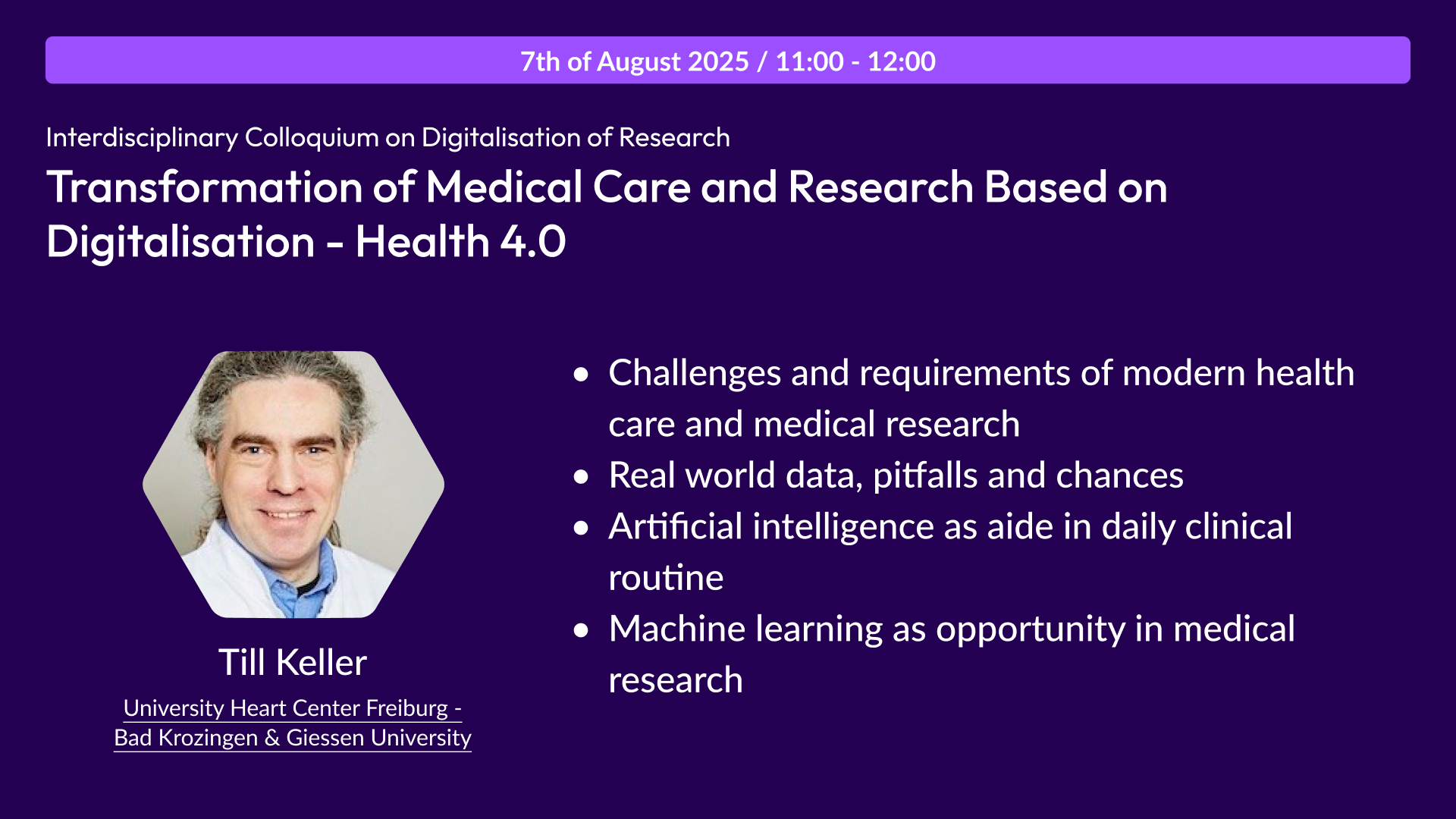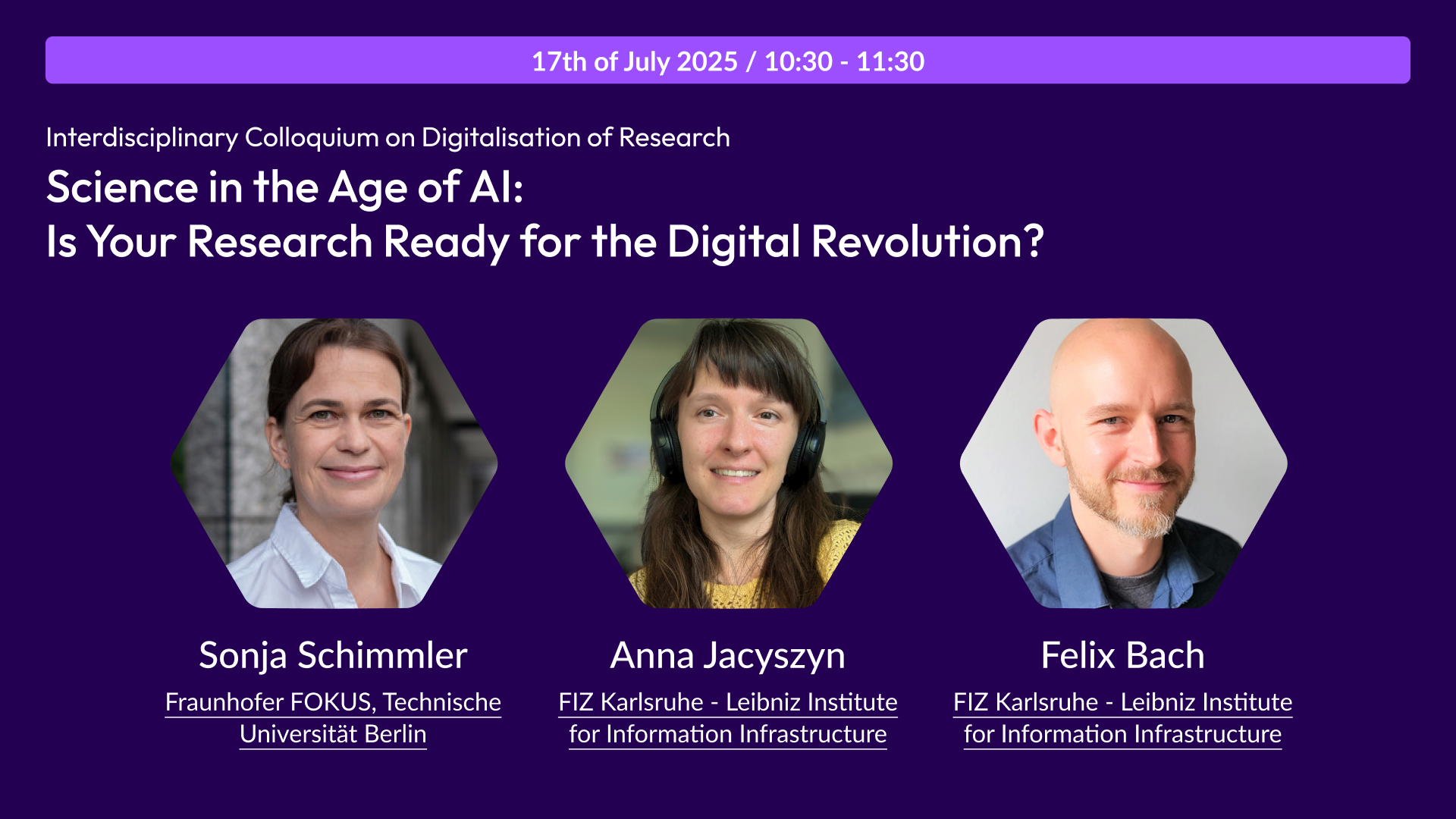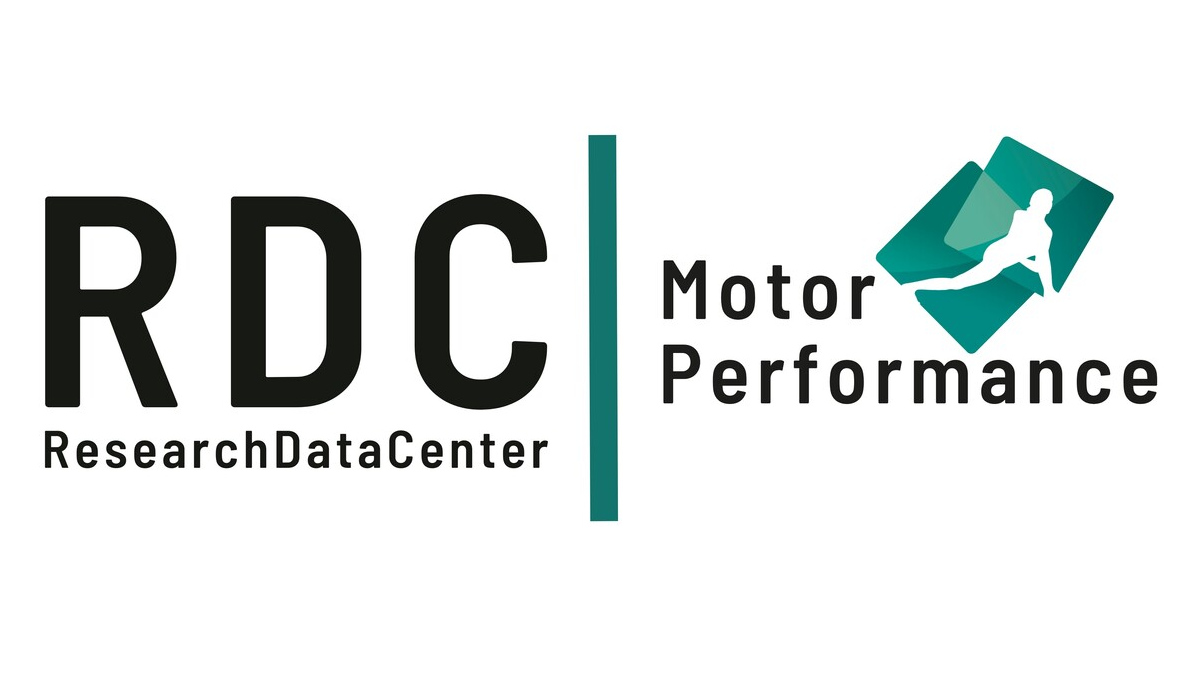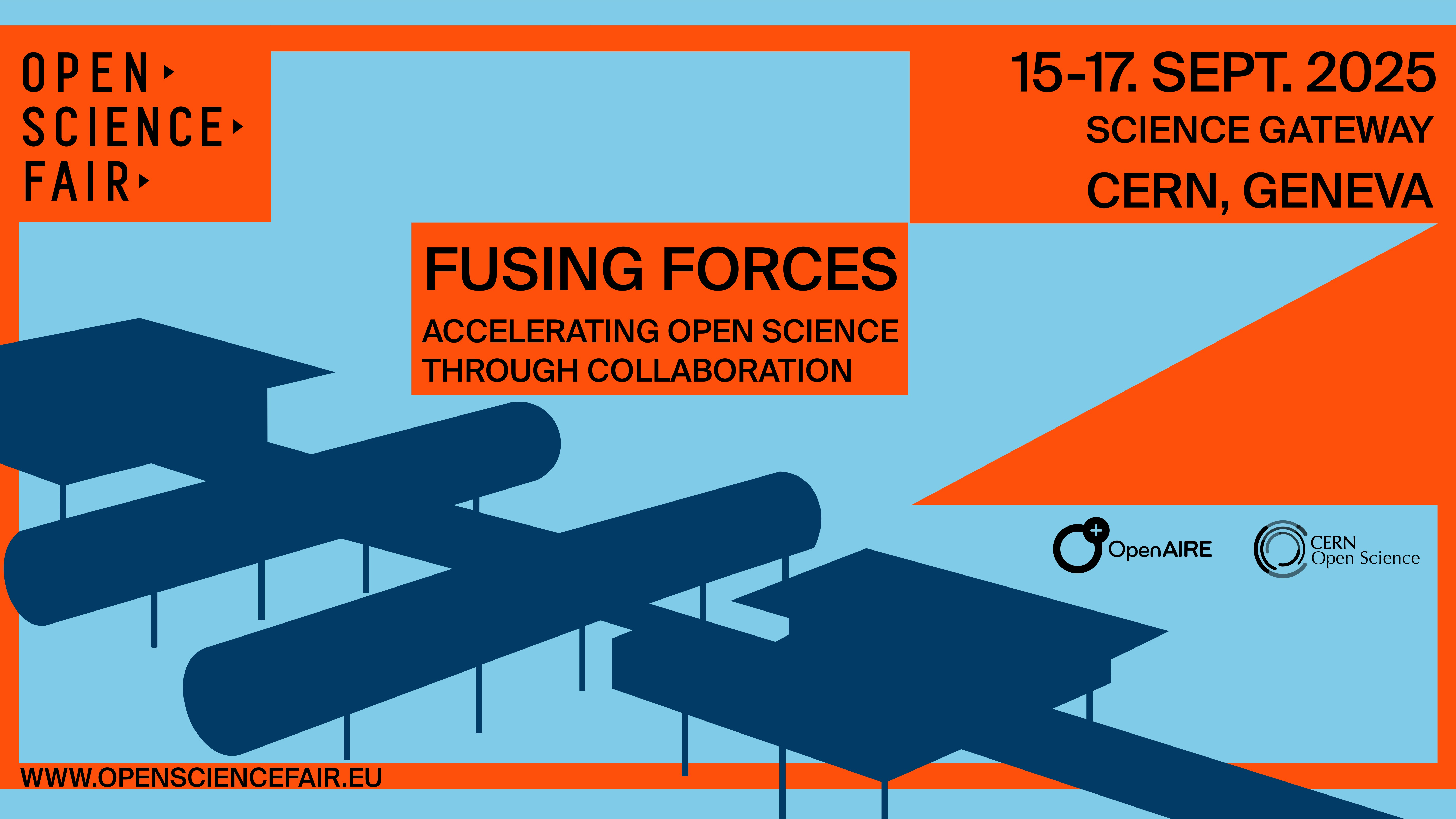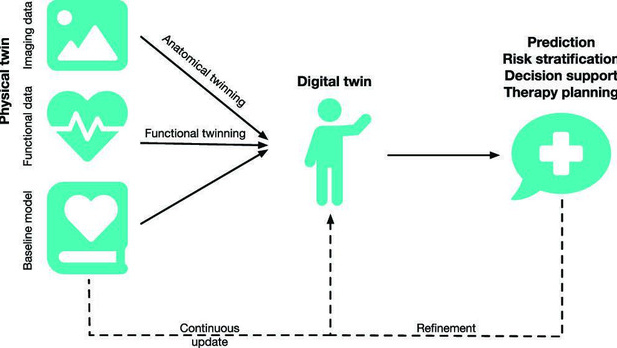Upcoming Next: Colloquium with Till Keller on 7 August
Join us for our next Colloquium about AI in biomedical engineering! With our special guest - Till Keller, Department of Cardiology and Angiology, Medical Center, University of Freiburg, Bad Krozingen - we will talk about Transformation of Medical Care and Research Based on Digitalisation - Health 4.0. We will discuss topics as broad as challenges and requirements of modern health care and medical research. One of the main foci will also be AI in daily clinical routine and ML in medical research.
Let's meet in person at the KIT Institute of Biomedical Engineering (IBT) and online on Zoom!
DiTraRe Symposium on Digitalisation of Research 2025
Mark your calendars for December 2 and 3, 2025, when the DiTraRe Symposium on Digitalisation of Research will take place as a noon-to-noon event at the Centre for Art and Media (ZKM) in Karlsruhe. The Symposium will focus on digital research practices, including the use of AI and open science. Expect an inspiring keynote, dynamic panel discussions, and interactive sessions that encourage lively exchange and collaboration. The Symposium will feature a dedicated Poster Presentations session with Poster Slam and Poster Session where you can present your work. Come exchange ideas with leading experts, engage in lively debates, and help chart the future of research in an increasingly digital world!
Recent Colloquium: 17 July with Sonja Schimmler
On 17 July the Interdisciplinary Colloquium on Digitalisation of Research kicked off with our special guest Sonja Schimmler and around 60 participants! During the event we briefly introduced the DiTraRe Leibniz Science Campus only to later try to reflect on the leading question: Science in the Age of AI: Is Your Research Ready for the Digital Revolution? Find video recording of the presentation session on the DiTraRe YouTube channel and presentation slides on the Colloquium website. Don't forget to join our discussion forum to talk about past and upcoming events and other DiTraRe related activities!
New Project Update of the Sports Science Use Case
Recently, Katja Keller from our Sports Science Use Case (Karlsruhe Institute of Technology, Institute for Sports and Sports Science KIT IfSS) gave a presentation on the newly published Research Data Center (DRC) Motor Performance!
- The presentation is available on Zenodo.
- The RDC offers different access paths to sports science data sets.
- The RDC is the further development of the MO|RE data repository.
- In addition hyperlinks and helpful information on RDM and the RDC platform are presented on the website.
- Recording of the presentation is available online.
DiTraRe Poster at the Open Science Fair in Geneva, September 2025
DiTraRe will be represented at this year's Open Science Fair in September in CERN, Geneva! 🥳 The leading topic of the conference aligns perfectly with our activites: Fusing Forces – Accelerating Open Science through Collaboration.
🪧 Felix Bach and Christian Bonatto Minella will present a poster titled "DiTraRe - Towards Trusted Digital Research Workflows". More info on their contribution here.
If you're attending the OSFair2025, make sure to check out the DiTraRe poster and talk to Felix and Christian!
Use Case AI in Biomedical Engineering Publication: Computational Modelling of Biological Systems Now and Then
Our Use Case partner Axel Loewe, has recently autohred an interesting publication in the area of AI in Biomedical Engineering: Computational Modelling of Biological Systems Now and Then: Revisiting Tools and Visions from the Beginning of the Century.
Since the turn of the millennium, computational modelling of biological systems has evolved remarkably. The recently published article led by DiTraRe researchers highlights recent achievements and new challenges, particularly in the cardiovascular system. It emphasizes the importance of mechanistic and data-driven models and their synergies to foster future progress in medical research and artificial intelligence.
